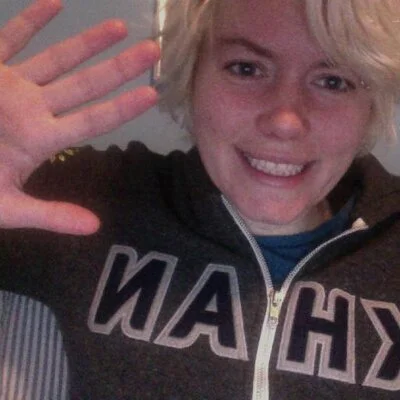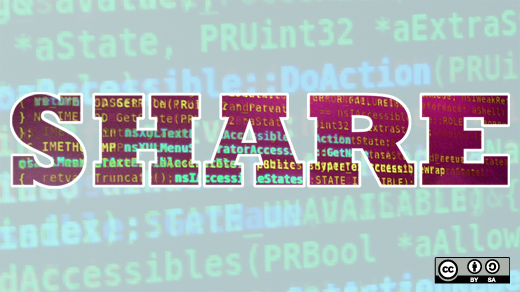SIGCSE 2015 for Computer Science educators kicks off this year from March 4 - 7 in Kansas City, Missouri.

The SIGCSE Technical Symposium addresses problems common among educators working to develop, implement and/or evaluate computing programs, curricula, and courses. The symposium provides a forum for sharing new ideas for syllabi, laboratories, and other elements of teaching and pedagogy, at all levels of instruction.
Last year Pamela Fox, Computing Curriculum Engineer at Khan Academy, was part of a panel on called "Disruptive Innovation in CS Education." I spoke with her afterwards to get her thoughts on how open source fits into education and the future of computer education.
This is a partial transcript.

opensource.com
Where are you from?
I was born in Los Angeles, grew up in upstate New York. My dad is a computer science professor at Syracuse University. My mom is a rocket science programmer. My dad is launching a "big data" MOOC, so we're both very interested in this field.
Where are you now?
Now, I work for Khan Academy in Mountainview California and live in San Francisco. I went back to the west coast as soon as I could and joined Google after graduation from University of Southern California in Los Angeles. I went to Australia, then got back to bay area three years ago. I was working on Google Maps API in Developer Relations, writing articles and demos, which is basically what I do now, but for non-proprietary technology.
I first learned HTML in the 7th grade. Within a year, I made a website that taught HTML to other people called "htmlforkids" or something (even though I was a kid too.) That was probably my first "official" educational content. After that I was a computer camp counseler. In college, I organized workshops around 3D programming (started a SIGGRAPH chapter). I use Khan Academy to get better at math now.
Why free and open source software?
I really enjoy teaching, and I enjoy trying to figure out how to teach something. I find it fascinating when I put out new course, I read the comments and say, "Wow, I forgot what it was like not to know." I'm interested in humans, I read a lot about how humans work, and behavioral science. There is a lot of that in teaching people, is all about learning. I'm just learning.
I'm generally a fan of open source, and that is another reason why I'm at Khan Academy, where we do that. As a web developer, I shouldn't have to reinvent the wheel. Often I say, "Really... really? I gotta solve this problem? I'm the only one that has ever tried to do this?" No, it's just someone didn't share it. Many of these components should be open source. Some people may say, "Well, we don't have jobs if we don't have to rewrite it." I don't want to believe that we live that way. I have friends with open source projects, who have tried to make money on it, doing enterprise versions, and getting paid for support. I'm always interested in the different ways of monetizing code. I feel like that part is still has open questions.
I think we should encourage sharing, kids are used to the idea of "cheating." Someone copies your code, and they say, "Hey, that's cheating" and we have to tell them, "No, it's MIT Licensed, and it is open source."
We have to teach them that sharing is OK. We have to do a better job of teaching open source and sharing, counter to what they may see in school. I'm upset there is no representation from the coding academies here at SIGCSE. They are trying to figure out how to get people ready for programming jobs in 12 weeks. I feel like I'm here representing that industry. Half engineer, half educator. I feel like I'm representing the "meritocracy" getting a real job thing too.
What can we do to improve computer education?
Coding academies are formed by people who learned alternatively, or didn't do well in college, and they are figuring out how to teach based on industry, and their good and bad experiences in college. They have good things to say about career oriented computer science education. They should be here (at SIGCSE) too. Girl Develop It, Women Who Code, they are all doing similar work, and they are disconnected from this world. I'm not just trying to do women-friendly hackathons but newbie-friendly hackathons too. More women are newbies than men right now, so if you fix things for newbies—people who are intimidated, who don't think of themselves as superstars—you fix it not only for women, but for men that have that same situation. Right now, we have to say "this is for women/girls" but the lines are getting increasingly blurred, and maybe we won't have to worry someday, but for now, we have to bring stuff up to parity good stuff.
I'm quite interested in how we can prepare the next generation for the world with it's concerns about security and privacy. I like reading books like Little Brother by Cory Doctorow, which is a YA book that forces kids to think about these issues. I want to find a way to introduce the next generation to these issues and be relevant. If anyone has ideas on how to do that, I'd like to know.







1 Comment